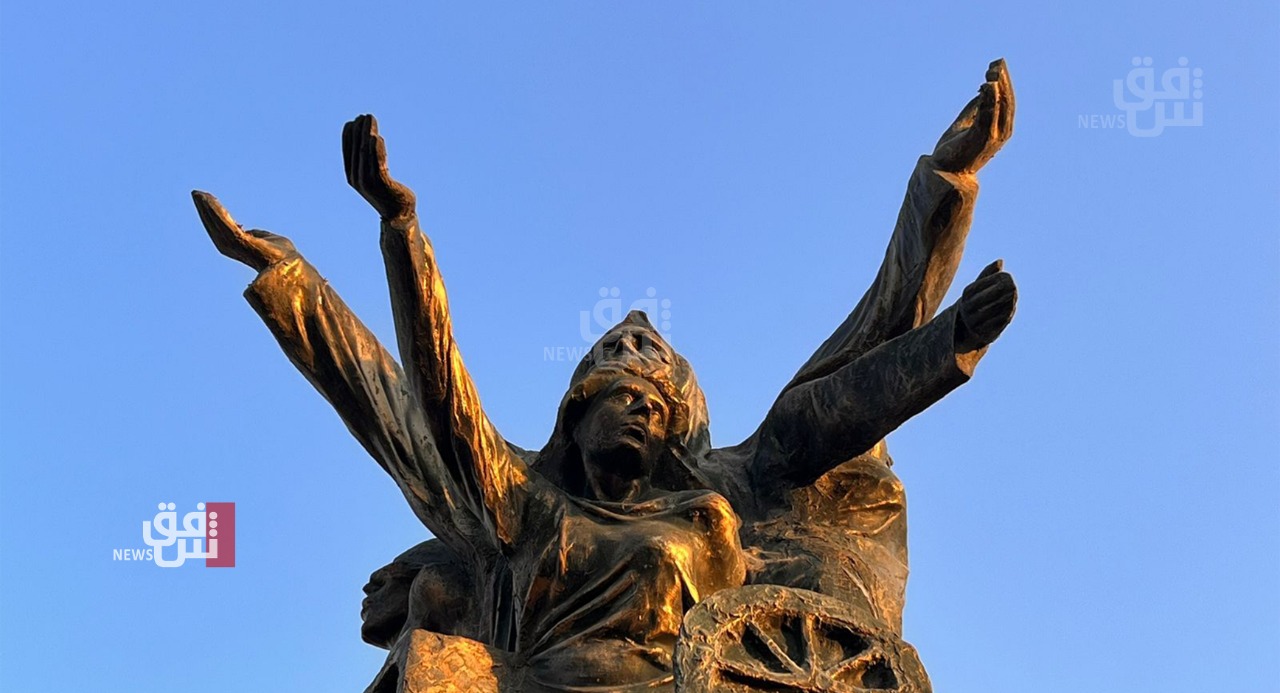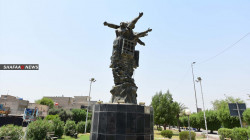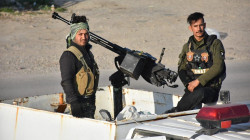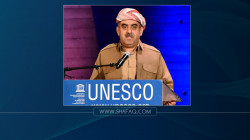The continuing struggle for justice: The plight of the Feyli Kurds in Iraq

Shafaq News / On April 4th, we observe the forty-third anniversary of a tragic event in Iraqi history, when many Iraqis were forcibly displaced from their homes due to racist and sectarian discrimination. The heinous process of mass displacement began in April 1980 and continued for an extended period.
The Baath Party, which came to power through a military coup in 1968, initiated a campaign of forced exile and deportation against the Feyli Kurds in 1969, motivated by sectarian and racial prejudice. In 1970, over 70,000 Feyli Kurds were stripped of their Iraqi citizenship, and between 1970 and 1973, numerous cases of executions and disappearances were recorded.
Although many of these atrocities were documented after the fall of the regime in 2003, none of them reached the level of severity experienced by the Feyli Kurds.
Today, Feyli Kurds residing in Baghdad and central Iraq face several challenges, including issues related to the loss of loved ones, property disputes, and compensation claims. Additionally, some government agencies continue to treat them unfairly, leading to delays in the completion of their transactions. Specialists recommend that the parliament take action to pass laws or address these issues to ensure that Feyli Kurds can achieve their rightful claims without further obstacles.
Despite enduring over 40 years of forced displacement and extermination under the previous regime, many Feyli Kurds still struggle to obtain their rights. On each anniversary, calls for justice on behalf of the martyrs' families persist, with one notable demand being the establishment of a special court to address Faili Kurd affairs. Tariq al-Mandalawi, Director General of the Martyrs Department of Terrorism Victims at the Martyrs Foundation, emphasizes that this court would help address cases and provide the necessary rights outlined in Law No. 2 of 2016, including inclusion in the Martyrs Foundation.
Al-Mandalawi urges the Iraqi government to take immediate action and address the Feyli Kurds' outstanding issues, citing the Iraqi Constitution's guarantee to care for martyrs' families, political prisoners, and those affected by the previous regime's arbitrary practices. Many Feyli Kurds are not officially registered in the prisoners' institution, and they should be recognized and given proper compensation, including a death certificate issued by the competent courts.
Historical records document systematic repression of Feyli Kurds under the previous regime, which began with frequent executions in 1979 and rapidly expanded into sizable Iraqi and Kurdish areas. In 1980, Decree No. 666 stripped Feyli Kurds of their Iraqi citizenship, treating them as Iranians. The previous regime also committed numerous grave human rights abuses, such as forcing husbands of Feyli women to divorce them for money or face deportation or arrest.
Persecution campaigns led to the deportation of approximately half a million Feyli Kurds to Iran. At least 15,000 Faili Kurds, mostly young men, disappeared without a trace. The previous regime specifically targeted prominent and high-ranking Feyli Kurdish traders and academics in Baghdad, who were known for their wealth and intellectual pursuits.
Ali Hussein al-Feyli, a former member of the Kurdistan Parliament, asserts that after two decades of the Feyli Kurds' case remaining unresolved, it is evident that the matter is political, rather than legal or humanitarian. If the law and the courts have made their rulings and the relevant parties, such as the government, have not implemented them, it is apparent that there has not been enough agreement or political support.
"There is no opposition from other groups, and the Kurds and Shiites claim they want to carry out the court's verdict and other decisions. The offender is obvious, but the issue is whether the political and governmental will exists to put an end to this persecution once and for all, for those who were directly impacted by the wave of repression. Few of them are still living, and anniversaries at a time when they should be a consolidation of the dilemma serve only as a reminder."
Moreover, according to legal expert Fouad Ali Akbar, many Feyli Kurds face obstacles when trying to access their rights. He calls on the Iraqi parliament to pass new legislation or amend existing laws to address the issues that the Feyli Kurds face. Specifically, families of martyrs encounter complex procedures that impede their ability to achieve justice, and many martyrs are still listed as being alive in official records, making it impossible for their families to obtain a copy of the sentencing.
According to Iraqi law, if a wife reports the death of her husband, the judge grants her a period of four years following the publication of the news of the loss in the newspaper. After the allotted time, the death certificate is issued as of the day of the loss. However, for Feyli Kurds, this is impossible because many were imprisoned and forcibly disappeared without trial.
Legal advisor Fouad Ali Akbar stresses the need for immediate implementation of procedures to grant the Feyli Kurds their rights. The scale of displacement means that many still face difficulties in obtaining citizenship and regaining their original Iraqi nationality.
Despite the fall of the previous regime, the Feyli Kurds have not received their full rights. Most of them who returned to Iraq faced difficulties in applying for citizenship or regaining their original Iraqi nationality. The number of Feyli Kurds who have had their citizenship restored since 2003 is 100,000, according to the Iraqi Ministry of Displacement and Migration in 2010. However, this is a small number compared to the 43 years of displacement, which has inevitably led to an increase in the number of displaced people due to births and the creation of new families.
The Second Deputy Speaker of the House of Representatives, Shakhwan Abdullah, considers the issue of restoring the rights of the Feyli Kurds a "great national responsibility" and pledges to follow up on their files in the Citizenship Law and property disputes.
It is crucial to continue working towards addressing the Feyli Kurds' longstanding issues, as they have endured decades of persecution and displacement. Ultimately, it is the right of the Feyli Kurds and future generations to be granted citizenship, making it necessary to continue working towards this goal.
Despite the Supreme Iraqi Criminal Court ruling that Saddam Hussein committed genocide against the Feyli Kurds during his rule, the community continues to face injustice and discrimination. As Judge Munir Haddad explains, the Feyli Kurds are still treated as foreigners when trying to obtain nationality, indicating that little has changed since the fall of the previous regime.
Many Feyli families owned homes in Iraq that were sold by the State Real Estate Directorate of the Iraqi Ministry of Finance after their deportation. Upon returning, they found that their properties had been sold to others, leaving them to file claims for compensation with the government. However, the executive government and the Real Estate Disputes Settlement Authority have failed to provide adequate compensation, leaving many Feyli Kurds to pass away without receiving justice.
Despite the passing of several laws during the era of al-Maliki that aimed to provide justice to the Feyli Kurds regarding prisoners, martyrs, and property issues, the problem lies in implementation and delay, according to Haddad. He emphasizes that they must be viewed with patriotism because they sacrificed for Iraq, Shiites, Kurdistan, and the Kurdish people.
The Feyli Kurds have endured decades of persecution and displacement, with many still facing challenges in obtaining fundamental rights. Dr. Essam al-Feyli, a researcher and academic, notes that the anniversary of the genocide serves as a reminder that injustice remains entrenched in the treatment of many institutions towards the Feyli Kurds.
Despite the Iraqi parliament's recognition of the 1980 crimes against the Feyli Kurds as genocide, the community still faces obstacles in achieving justice. Dr. Essam al-Feyli highlights that the current political class bears the main part of the responsibility for the fragmentation of the Feyli Kurds and their continued struggle for justice.





